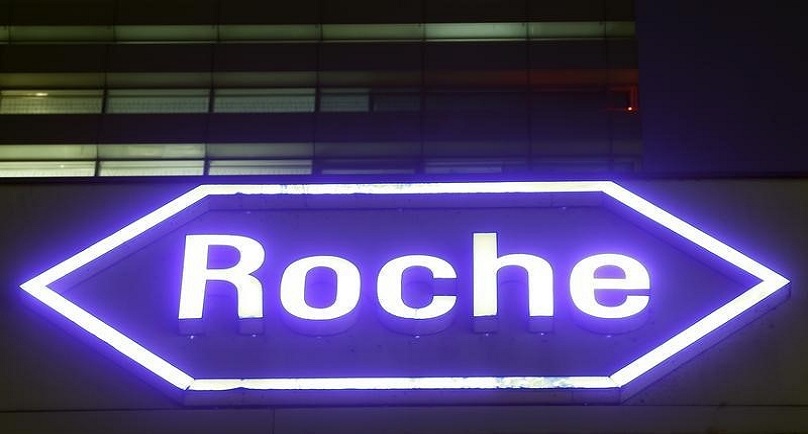Image: Swiss drugmaker Roche’s logo is seen at their headquarters in Basel, Switzerland January 28, 2016. Swiss drugmaker Roche on January 28, 2016 missed analyst expectations by posting 2015 core net income of 11.84 billion Swiss francs ($11.64 billion). REUTERS/Arnd Wiegmann
By Deena Beasley
CHICAGO (Reuters) – Early results from a clinical trial of Roche Holding AG cancer drugs released on Saturday suggest some promise in matching treatments based on abnormalities found in a patient’s tumor rather than the organ in which the cancer was originally detected.
The findings, presented at the annual meeting of the American Society of Clinical Oncology in Chicago, showed that 29 out of 129 patients with 12 different types of advanced cancers responded to drugs targeting genetically driven abnormalities.
The drugs were administered outside of indications currently approved by the U.S. Food and Drug Administration, which generally reviews drugs using studies based on the type of organ where the cancer was found.
The trial, which received funding from Roche’s Genentech unit, is designed to eventually enroll up to 500 patients.
The most promising results to date were seen in patients with tumor abnormalities linked to a protein called HER2.
Seven of 20 patients with colorectal cancer, three of eight with bladder cancer, and three of six with biliary cancer saw tumor shrinkage of 30 percent or more after treatment with a combination of Roche drugs Herceptin and Perjeta, which target HER2 and are typically used to treat breast cancer.
The researchers said the trial will expand those groups of patients, as well as a separate group with BRAF mutations in lung cancer who were treated with Zelboraf, which is approved for melanoma.
“With genomic testing of tumors becoming increasingly available, studies such as ours will help more patients benefit from precision medicine approaches,” lead study author Dr John Hainsworth, senior investigator at Sarah Cannon Research Institute in Nashville, Tennessee, said in a statement.
The study also included Roche’s Everidge, a basal cell carcinoma drug that targets the a cancer-related signaling pathway known as Hedgehog and Tarceva, a lung cancer drug that targets a cell-surface receptor known as epidermal growth factor, or EGFR.
Such targeted drugs are seen as a type of personalized medical therapy designed to treat cancer by interrupting unique molecular abnormalities that drive cancer growth. The targeted drugs are designed to interfere with a specific biochemical pathway central to the development, growth, and spread of that particular cancer.
During the trial, 14 patients who initially responded to treatment saw their cancer eventually worsen.
The researchers said they plan to study other drugs, including Roche’s Cotellic, an MEK inhibitor, currently approved for advanced melanoma.
(Editing by Matthew Lewis)
Copyright 2016 Thomson Reuters. Click for Restrictions.


